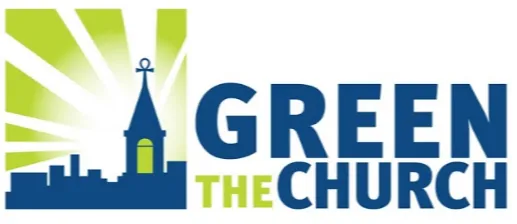Engineering Sustainability With Purpose and Faith with Dr. Lilia Abron
Nov 07, 2022Engineering Sustainability with Purpose and Faith with Dr. Lilia Abron

by Rachel Elizabeth Dennis, for Green The Church
When most people think of the word “engineering,” they probably don’t connect the term to the concept of faith. However, Dr. Lilia Abron is changing that perception. As the first African-American woman to earn a PhD in Chemical Engineering, she has dedicated her life to using engineering principles to improve sustainability initiatives around the world, with a focus on helping those who are impoverished.
What’s even more impressive is that she does all this while remaining an active member of her home church. In fact, Dr. Abron credits her faith as one of the driving forces behind her philanthropy.
If you’re looking for inspiration as well as actionable examples of how to merge faith and social responsibility, Dr. Abron’s personal journey is a great place to start.
Early Years in Faith
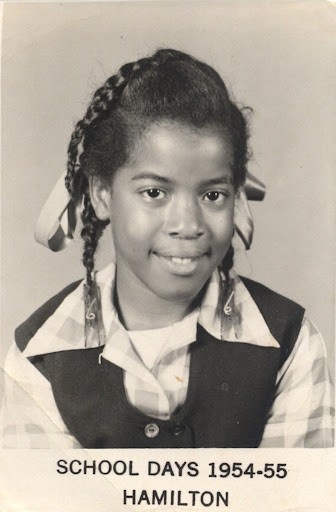
Growing up in the church in Memphis, Tennessee, young Lilia was surrounded by music. It was a direct and joyous connection to her relationship with the family, the land, and God for as long as she can remember. Back then, every family had a piano in their house, and her home was no exception, she explains.
Lilia and her three sisters were fondly referred to as “the Abron girls” and all played the piano and participated in the choir. To this day, Dr. Abron continues to sing in the choir.
Both of her parents were deeply rooted in the Baptist tradition and were known by the community for being the first to arrive at Sunday service and the last to leave. As a child, Lilia was inspired by her parents’ commitment to the social justice work of the church. The church allowed her to see the importance and impact of the Civil Rights Movement, and how people could make a difference in the world with God as their guide.
In the Abron family, simply showing up to connect with the community and God was a powerful step towards social and environmental remediation.
In young Lilia’s mind, a sense of personal responsibility was being integrated with her spiritual practice over time. She reminisces on the common message in her household:
“You are your brother’s keeper. You are responsible. You’re blessed to have what you have, and you’re responsible to take care of others, as God has taken care of you.”
This message would stay with her throughout her life and career. Her involvement in the church-sponsored Girl Scout Troop further deepened her sense of responsibility to others.
In addition to being responsible for the family and community, Dr. Abrons parents taught her to have respect and mindfulness for the land and its many ecosystems.
"We took care of the land. We captured water in a cistern and used a pump from the well. Nothing was thrown away. You had to use everything because there was little or no money. This meant that we practiced canning, composting, and reusing whatever we could.”
Dr. Abron’s mother was raised in a rural area and her family didn’t need to rely on grocery stores until the production boom of World War II. Instead, the family received trucks full of produce that they prepared and cleaned in their own home.
Dr. Abron remembers processing her own plants at home, scrubbing the dirt off of each piece of food in the bathtub alongside her siblings.
These practices made land sovereignty and food security a part of everyday life and would continue to be an important issue for Dr. Abron later on in her career.
Living off of the land as a child paralleled many important lessons that her mother taught her about being a good steward of the earth. These practices would stick with her as an adult and be ingrained in her engineering work.
"Mom wouldn’t allow pesticides in her garden. Being a Brownie and a Girl Scout, we were taught about preventing forest fires, how to protect the environment, take care of animals, etc."
These principles are still crucial today and Dr. Abron has made it her life’s work to make sure that they are being implemented on a global scale.
The Way Up and Out Through Education
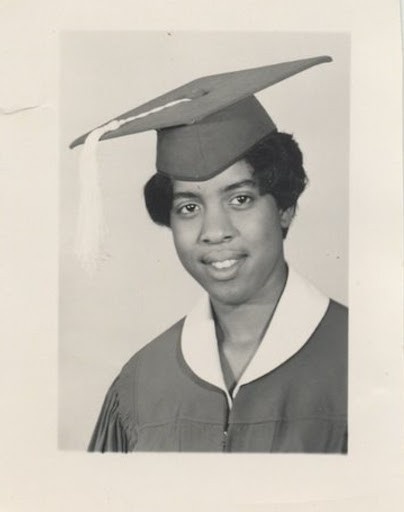
Dr. Abron’s relationship with God became deeply personal when she felt the presence of the Lord aligning her on her educational path. Her parents would often say "The way up and out is through education". As the daughter of two college graduates with an older sister who was actively pursuing a higher education program, there was always a loving call towards academia in the Abron home.
Wistfully and with tears in her eyes, Dr. Abron retells how, in a moment of personal prayer, she asked God to provide her with the resources needed to pursue her education and promptly received them:
"Going to college, having a scholarship, never knowing where the money was coming from, but trusting, feeling blessed, and knowing it will come was a blessing. It came from God."
This moment was a pivotal one in her journey of faith, as it broadened her understanding of what it meant to have purpose alongside the power of education.
A pivotal text changed her perspective even further.
“I had planned to be a pediatrician, then I read Silent Spring and this changed my direction away from medicine and towards chemistry.”
Silent Spring, written by Rachel Carson and published in 1962, documented the adverse effects of pesticides on the environment, particularly on birds. The book was influential in launching the environmental movement in the United States.
As for the engineering component, Dr. Abron found engineering everywhere she looked within the community. There was engineering in God’s plan, engineering in the family and home, and engineering in foundational social services. She saw it everywhere and knew this was her path towards creating sustainability.
“We need a do it yourself approach for sustainable practices. I recall the sanitation strike of 1968 in Memphis, TN. The city came together and demanded change. It is essential to organize and use your community, church, and creative influence to prevail. You have a direct influence on solving our world’s problems.”
She began to call those previously referred to as “garbage men” the more accurate and compassionate term “sanitary engineers” because they were the ones cleaning up and keeping the community safe. She felt connected to them and their work and knew they shared a common cause.
She began to work in the field of sanitary engineering and received a full-tuition scholarship to pursue a Master’s degree in engineering. She completed her courses and thesis in record time, outshining the majority of classmates, who were almost exclusively white males.
By the end of her academic career, Dr. Abron earned her BS in chemistry at LeMoyne College, an MS in environmental engineering at Washington University, and her PhD in chemical engineering at the University of Iowa.
Ultimately, pursuing engineering was a way for her to give back and made her a proactive steward of the environment.
“My degree put science, engineering, and chemistry all together. This brought me closer to the environment because we have the obligation to take care of mother earth. I have a responsibility to protect her.”
Developing a Career in Sustainability
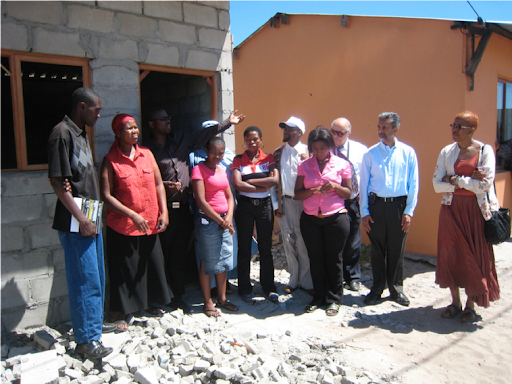
After graduation, Dr. Abron worked as an environmental chemist at the Kansas City Water Department and as a research environmental chemist at the Metropolitan Sanitary District of Chicago.
Dr. Abron then worked as an assistant professor between 1971 and 1975 at several universities, including the Tennessee State University, Vanderbilt University, and Howard University. At that time, however, women, particularly Black women, were primarily serving as support roles or assistants, making advancement difficult.
“When I went into teaching, I saw this play out in truth. There was a double standard and women weren’t equal, especially in engineering. I was active and outspoken, and doing consulting on the side."
Despite her clear passion and expertise in these fields, academia wasn’t embracing Dr. Abron’s full potential. This motivated her to start her own consulting firm, which would eventually become one of the most successful in the industry.
PEER Consultants, P.C.
Dr. Abron founded and became President and CEO of PEER Consultants, P.C., in 1978. She was the first African-American to establish an engineering consultancy dedicated to environmental issues and concerns linked to the physical and human environment.
She received a tremendous amount of help from mentors and university professors that pushed and tracked her progress along the way. She reflects on the fact that coming from a family that didn't have much formal business experience, that she could pull from the values she learned from working with the land:
“No one in my family had a business, but in a way farming gave me an idea of what business was, since we had resources from the land. And the work is generally the same. You get in, you learn, and you stumble a lot.”
PEER is a full-service environmental engineering consulting firm that provides personalized service to its customers, fosters and maintains long-term partnerships, and recruits enthusiastic and diverse employees.
It has grown from a small group of only three employees to a booming team of over 70 scientists, engineers, planners, technicians, and administrative professionals.
A project that Dr. Abron holds close to her heart is PEER Africa. This initiative began in 1995 and helps to empower and formalize communities in South Africa and support sanitation logistics. They specialize in upgrading and transforming informal communities to resilient, sustainable formal communities.
Over the past two decades, PEER Africa has established innovative “best practice solutions” for environmentally sound and sustainable projects in the built environment that contribute to the eradication of poverty, and promote and enhance local economic development in the very poor to destitute communities in South Africa.
One of the program’s most ambitious projects involved building energy-efficient homes in a post-Apartheid South Africa by empowering and listening to the knowledge of the head matriarchs of each family.
"We organized [and] established housing, engineering, and health practices. We built affordable homes that were acceptable to the women. This prevented dirty fuels in the house. Children had respiratory diseases and asthma and this was one of the things that was addressed through PEER Africa’s work."
PEER Africa strives to provide municipal services efficiently and give people the power to improve their lives in a way that upholds democratic values, creates opportunities for personal growth, and improves economic conditions for everyone. Their continued mission is to Provide integrated environment, economic, empowerment, cost-optimized solutions for a sustainable, built environment.
Keeping the Faith
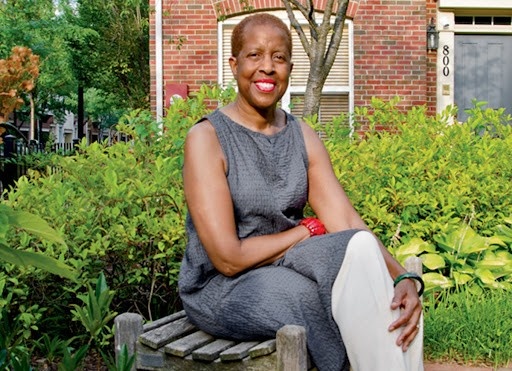
As a devout Christian, Dr. Abron sees the church as an important agent of change in the world. She has actively served at the First Baptist Church in Washington, D.C., for over 35 years—participating in the choir, serving as a deacon, and contributing through missionary work.
She looks forward to future missionary projects and to serving local communities that are in need. This passion to give back through service was inspired by the missionary work that her mother did in the past.
“I will probably do more missionary work with impoverished communities in the US when I’m retired. Border communities are in awful living conditions. I know how to solve that problem socially and technically—you just need to get in there politically.”
Bringing this important work back to the South, the place of Dr. Abron's humble beginnings, is very important to her. Taking responsibility for remediating and developing the land that her ancestors farmed is part of her life’s purpose.
“The work that I do, it’s not just a job. It really is my ministry."
Looking Ahead
What does Dr. Abron's story tell us about what it means to have purpose and faith?
Dr. Abron’s story is a reminder that no matter where we come from, it is possible to achieve great things. It also demonstrates the importance of using our talents and skills to make the world a better place.
Chemical Engineering is one of many ways one can contribute to our world and take responsibility for its well being. What makes your heart sing, and what calls you to passionately and bravely help heal our world? Your unique talent is a worthy gift to the cause.
Lastly, Dr. Abron’s story is a reminder that our faith can be a powerful force for good in the world. When we are driven by our faith, we can accomplish important works. Tasks that feel insurmountable or impossible become powerful paths forward with God as a guiding force.
We hope that Dr. Abrons’ story inspires readers to see the potential for good that exists within each one of us. We all have the power to make a difference in the world, and through one story at a time, we can discover and implement our own contributions to a healed and holistic world.
